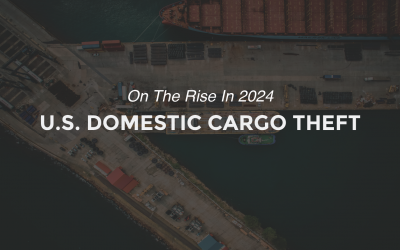Securing a marine cargo insurance policy can mean the difference between completely losing the value of a shipment and being fully protected in the event of loss or damage of FBA merchandise.
What is Marine Cargo Insurance?
Marine cargo insurance protects from the loss, damage, or theft of commodities between the point of origin and final destination.
When shipping internationally, FBA sellers must keep in mind that damage is always possible. Annual worldwide ocean cargo losses generally exceed $2.4 billion each year. Mishandling of cargo while loading or unloading, weather conditions, water damage, and piracy are common reasons for damage.
Not counting catastrophic events, there are approximately 350 containers lost at sea each year. Counting catastrophic events, there are approximately 675 containers lost at sea each year. The number of containers lost in a catastrophic event can vary from 50 to several hundred.
The primary purpose of Marine Cargo Insurance is to protect shippers from suffering lost revenue. Since loss or damage to a shipment can ruin your bottom line, purchasing additional freight coverage can make or break a seller. It is available to help a company move forward and protect its business investments.
Types of Marine Cargo Insurance
Marine cargo policies are customizable to fit the needs of any company. There are different policy types for businesses to consider. There are also many coverage options for shippers to choose from.
Carrier Limit of Liability
When shippers do not purchase a Marine Cargo Insurance policy, they are only covered by carrier limit of liability. Carrier limit of liability determines the maximum amount of money that carriers can be held liable for in the event of damage, loss, or delay of cargo. A carrier is only liable to a shipper when loss or damage of cargo is due to carrier negligence. On top of that, carriers hardly cover the loss experienced by the shipper.
For a carrier to be liable for loss or damage, importers have to prove that their cargo was in good condition when given to the carrier, but was delivered damaged, or not delivered, and they must prove the amount of the damage they are claiming.
However, carriers will only be held liable for a certain amount per pound of lost or damaged goods, which can be as low as $0.10 per pound. Learn more about what is covered by the carrier in the event of loss.
General Average Protection
If you purchase an all-risk marine cargo insurance policy, you are covered in the event of general average. The law of General Average states that cargo owners are jointly responsible for losses or costs associated with protecting a ship’s cargo.
There has been an increase in the number of General Average incidents over the past few years. Including:
- ONE Apus
- Fire Aboard Yantian Express
- Evergiven stuck in the Suez Canal
When General Average is posted, importers can experience loss of cargo or extreme delays in delivery. If the importer does not have Marine Cargo Insurance in place, they must post an Average Bond immediately. Until the bond is posted, the importer will not receive the cargo that survived the General Average Event.
Those properly insured will have their portion of the claim covered. Without the proper protection, the cargo’s owner is fully liable for their portion of the claim. Since not all policies offer this protection, importers must determine if they are covered for and if General Average is included before purchasing their policy. All-risk policies with Trade Risk Guaranty offer General Average coverage.







